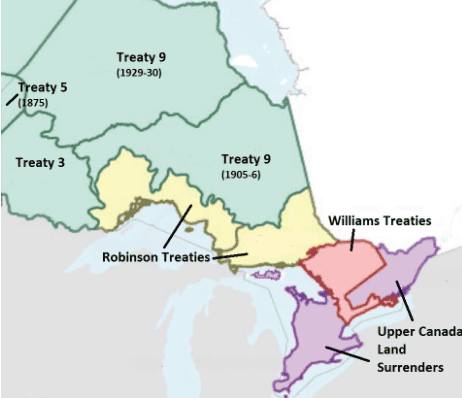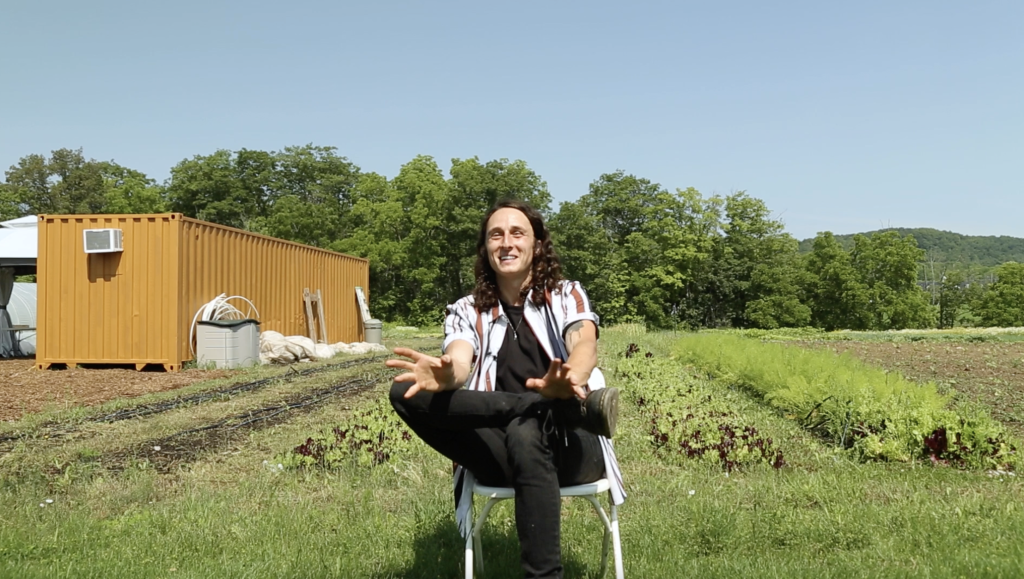Mississaugas of Scugog decry Greenbelt swap ‘catastrophe,’ call on governement to reverse course
Published August 17, 2023 at 3:03 pm

The Mississaugas of Scugog Island First Nation (MSIFN) have pledged to keep fighting Ontario’s $8 billion Greenbelt land swap until the government reverses course.
Premier Doug Ford and Housing Minister Steve Clark have been under fire for days after the release of an Auditor General report which found their removal of land from Greenbelt protections was a biased process that favoured certain developers.
Ontario announced the swap of 15 parcels of the Greenbelt last fall after years of assurances from Ford his government would not change the Greenbelt’s borders.
They argued building on the Greenbelt was the only way to meet their housing construction targets to alleviate the affordability crisis. However, the Province’s own housing task force pointed out Ontario can meet its housing goals without the Greenbelt. The move proved immediately controversial and prompted an investigation.
Auditor General Bonnie Lysyk released her report on the swap on Aug. 9. She found the entire process was flawed and favoured developers with connections to Clark through his chief of staff, Ryan Amato. Lysyk also found that most of the land value of the swap was in the Pickering Duffins Rouge Agricultural Preserve (DRAP).
This section of the Greenbelt had its own protections to ensure it was only ever used for conservation or farming. When the DRAP was established some of the land was owned by Silvio De Gasperis of the TACC Group who has bought more and more of the land at a lower agricultural rate. With the protection removal, the DRAP lands’ value increased by over $6.6 billion. In total all Greenbelt land increased by more than $8.3 billion.
Amato was given a package asking for the DRAP’s removal from the Greenbelt by two unnamed developers during a Building Industry and Land Development Association’s (BILD) Chair’s Dinner. He sat at the same table as the developers during the event.
However, the bias was but one problem Lysyk found in the process. She also found the “Housing Ministry’s consultation with Indigenous communities was insufficient to meet the Province’s Duty to Consult with regards to treaty rights.” She also found the non-political ministry staff warned the ministry Indigenous communities felt this way, but they still rushed through the plan.
The DRAP’s protections were removed in Nov. 2022 through the repeal of the Duffins Rouge Agricultural Preserve Act, 2005. However, the public was not consulted about the removal beforehand, according to Lysyk, as required by law.
This includes Indigenous communities who have a constitutional right to consultation under Section 35. The Supreme Court of Canada has consistently ruled that this consultation must be honourable and meaningful. Additionally, the Greenbelt plan reads “The Ontario government shall consult with First Nations and Métis communities on decisions concerning the use of Crown land and resources that may affect Aboriginal and treaty rights within the area of the Greenbelt Plan.”
Most of the removed Greenbelt land is part of the 1923 Williams Treaties between Canada, Ontario and seven First Nations including the Chippewa (of Beausoleil, Georgina Island and Rama) Mississaugas (of Alderville, Curve Lake, Hiawatha and Scugog Island).
These were the last treaties negotiated and transferred 20,000 square kilometres to the Crown. The First Nations received a one time cash payment for the lands, but retained some further rights, including the right to hunt and fish on treaty land. After years of litigation, the First Nations and the Crown came to final agreement about the Williams Treaties in 2018.

A map of Ontario treaties with First Nations peoples via the Canadian Encyclopedia.
In the course of their investigation, the Auditor Generals office spoke with several of the affected First Nations including including the MSIFN. “All First Nations that we met with reiterated that they were unsupportive of the removals from the Greenbelt and that the process undertaken by the Housing Ministry did not represent effective or meaningful consultation,” Lysyk wrote.
According to the Mississaugas of the Credit (who have their own treaties with the Crown), there it a “high standard to meet for consultation with them due to the size of their lands and since many removals affect their treaty lands, and that a 30-day comment period cannot replace a consultation process since the obligation is with the government to consult, not with First Nations.”
“Members of First Nations we met with told us that the Province does not seem open to discussing the adverse impacts of Greenbelt removals to treaty lands and rights, and that, should development occur on these lands, the removals could have profound impacts on treaty rights, especially in terms of harvesting crops,” Lysyk wrote.
Additionally, Lysyk found the government only sent of notifications letters to 12 First Nations chiefs to inform them of the changes and did not reply to their objections. The Housing Ministry only met with two First Nations and one of those meetings was in January, after the lands had been removed.
In the wake of Lysyk’s report, the MSIFN called her findings useful in proving the Ford govenment “acted inappropriately” but said the circumstances of the swap remain the same unless the province changes course.
“The stripping of protection of portions of the Greenbelt by the Ford government must be reversed – and MSIFN is committed to continuing the fight against this planned environmental catastrophe.” The First Nation pointed out that Lysyk also found the Greenbelt lands are not needed to meet the Province’s housing goal.
“We appreciate the Auditor General’s thorough work and emphasis on points we have made repeatedly in previous months and years,” wrote Chief Kelly LaRocca, “However, without the Ford governement changing their stance on the matter the report is nothing but a side note. The governement must listen to the experts who say such devastating action is not needed.”
LaRocca adds her voice to a growing choir of local leaders critizing the Greenbelt removal. Whitby Mayor Elizabeth Roy has also called for the government to reverse course and Pickering Mayor Kevin Ashe called the move “subsidizing private interests.” NDP leader Marit Styles has also visited Pickering where she called for the DRAP to be returned and for Clark’s resignation.
Despite admitting to a “flawed” process, Ford and Clark made vowed they were sticking with the plan in a press conference after the report’s release.
insauga's Editorial Standards and Policies advertising






